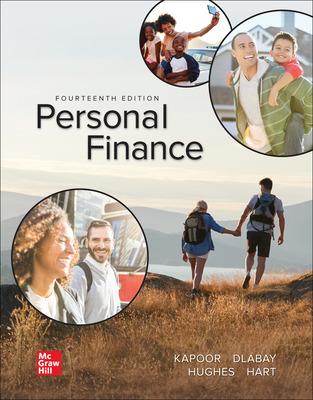Identity theft is the fastest-growing financial crime. One of the first things the FBI discovered about the
Question:
Identity theft is the fastest-growing financial crime. One of the first things the FBI discovered about the September 11 hijackers was that as many as half a dozen were using credit cards and driver’s licenses with identities lifted from stolen or forged passports.
If you care at all about the privacy of your financial information—your credit history, your portfolio, your charge card numbers—you can protect yourself from criminals determined to exploit that information.
The theft can be as simple as someone pilfering your credit card number and charging merchandise to your account. Or it can be as elaborate as a crook using your name, birth date, and Social Security number to take over your credit card and bank accounts, or set up new ones.
If your identity has been snatched, you’re first likely to learn about it when checks start bouncing or a collection agency begins calling.
The damage isn’t so much in dollars, since the financial institutions are liable for the unauthorized charges. Rather, the fallout includes a checkered credit history, which could prevent you from getting a mortgage or a job, and the countless phone calls and piles of paperwork you’ll need to go through to set the records straight.
Guarding against identity theft is much like locking the door and activating the burglar alarm when you leave your home. By and large, the crime is a low-tech operation, despite well-publicized instances of hackers breaking into websites and stealing millions of credit card numbers. Usually, someone fishes a bank statement or credit card offer out of your trash, or a dishonest employee peeks at your personnel file.
To protect yourself, keep your Social Security number in a secure place and never carry it around with you. Provide your Social Security number only when necessary. Instead, try to use other forms of identification. Ignore email requests for your personal financial information. Shred your discarded financial records and any preapproved credit card applications. And check your credit report regularly, because credit card companies don’t have to honor fraud alerts.
Finally, protect your identity by giving it a lower profile. For example, remove your name from junk mail and telemarketing lists by going to the Direct Marketing Association’s website at www.thedma.org/resources/consumer-resources. Call 1-888-567-
8688 to stop receiving preapproved credit card offers.
Questions
1. What are several methods that crooks use to steal your identity?
2. How do you discover that someone has stolen your identity?
3. What steps can you take to thwart identity thieves?
4. What actions might you take to ensure that your credit cards and other financial information are secure?
Step by Step Answer:

Personal Finance
ISBN: 9781264101597
14th Edition
Authors: Jack Kapoor, Les Dlabay, Robert Hughes, Melissa Hart





